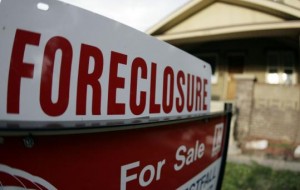Wow! So, the housing market appears to be back on track towards making a comeback from a historic downturn. At the rise of the housing bubble the housing market saw homes selling at all time highs and construction of homes and subdivisions as well. With the

economic downturn Americans and countries around the world watch as the hope that the trend in a rise or increase in housing market sales and prices rise. The hope is that this uprising trend is a sign of the end of the historically horrible economic time and a beginning of another housing “boom.” Unfortunately this rise looks all too similar. As we know history does repeat itself.
The problem with this theory is that the housing market seems to be led by investors. Does this sound familiar? Yes, the same occupation of people that led the last housing bubble and eventually led us to this situation that we are in as we speak. The investors bought up homes at low prices and rehabbed them and sold them at higher prices. This “boom” caused thousands and even millions of people to ride the wave and in turn inflated prices unnaturally. Many ethical questions come into play when remembering these choice tactics. Do you agree with any of the following causes or actions that contributed to the downturn in the housing market? The greed of builders and investors in a capitalist mind state, the greed of borrowers who borrowed funds that they knew they couldn’t afford, the greed of lenders giving funds that they knew would default on the loans.
In order to purchase homes consumers need a steady income. You may have heard the craze about the home mortgage loans currently being at an all time low approximately 3-3.5% for a 30 year fixed loan, but the problem appears to be that many consumers don’t have the jobs or monthly income to obtain those low rates on the wanted loans. As people buy more homes the demand will go up and the loan rates will rise as well, which will make it more difficult for people to afford to purchase homes.
The federal government budget cuts are personally affecting me, as well as thousands of other employees. The government sequestration and military spending cuts takes finances out of many of those peoples and families household income. Furlough days have been placed on many workers throughout the nation and I’m just not sure if taking income away from the consumer is the best way to urge the consumer to purchase more homes. I would like to see the loans held at these low rates when the demand for homes eventually rise up again.
Sources Cited:
Christie, Les. “3 Reasons the Housing Market Recovery May Not Last.” CNNMoney. Cable News Network, 18 Apr. 2013. Web. 19 Apr. 2013.
http://money.cnn.com/2013/04/18/real_estate/housing-recovery/index.html?source=yahoo_hosted

